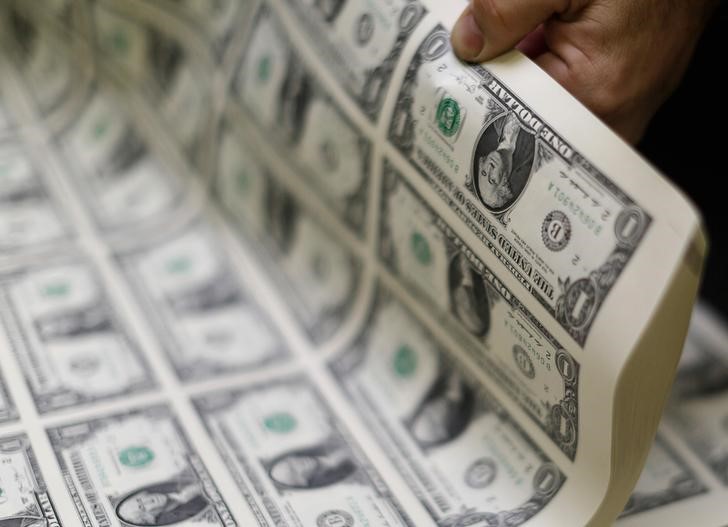
At 05:00 ET (09:00 GMT), the Dollar Index, which tracks the greenback against a basket of six other currencies, traded flat at 104.060.
The dollar has been on the back foot this week, with the index down 0.5% this week so far, as easing labor market conditions in the United States added to the case for Fed rate cuts this year.
Weekly jobless claims came in slightly above last week’s upwardly revised 221,000 on Thursday, supporting this week’s market narrative that labor market tightness is ebbing.
Next up is the keenly-anticipated monthly jobs report.
Expectations are for the world’s largest economy to have added 185,000 jobs last month – slightly more than April’s 175,000, which was the smallest gain in half a year. The unemployment rate is expected to have remained below 4% for the 28th straight month.
The employment report could prove the economy is losing steam if it shows the slowdown in job creation has continued, but an upside surprise could deliver a jolt higher for the dollar.
Markets have priced in nearly 50 basis points of Fed rate cuts this year, with the first expected to come in September.
EUR/USD slipped 0.1% lower to 1.0884, falling back from the 2-1/2 month peak of 1.0916 hit seen earlier in the week as traders assess the European Central Bank’s first interest rate cut since 2019.
At the same time the central bank raised its inflation forecasts and President Christine Lagarde declined at a press conference to confirm it had entered a phase of ‘dialling back’ its restrictive monetary policy.
“Lagarde’s comments during the press conference – which pointed to a still-needed level of restriction, high data dependency and the fact that one member of the Governing Council was against yesterday’s rate cut decision – suggested that the ECB has indeed not yet decided on any next steps,” said analysts at ING, in a note.
GBP/USD fell marginally to 1.2786, with sterling trading in a tight range ahead of the Bank of England’s next rate-setting meeting later this month.
In Asia, USD/JPY traded 0.2% lower to 155.33, with the focus squarely on a Bank of Japan meeting next week, where the central bank is expected to begin tapering its bond purchases, tightening policy.
USD/CNY slipped slightly to 7.2428, remaining close to six-month highs after the release of the latest Chinese trade data.
China’s exports grew more than expected in May, buoyed by strong industrial production and overseas demand. This saw the country’s trade balance also log a bigger-than-expected surplus.
But China’s imports grew at a much weaker-than-expected pace, indicating that local demand remained subdued as the broader economy grappled with an uneven economic recovery.
To read the full article, Click Here
